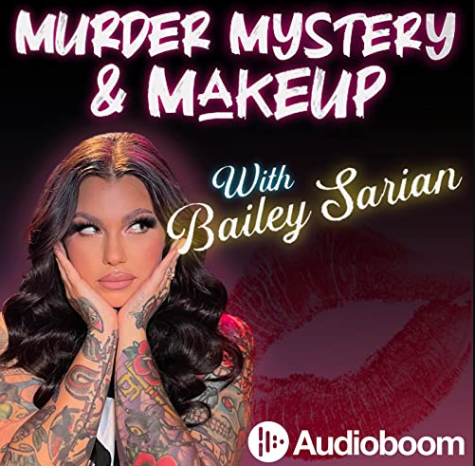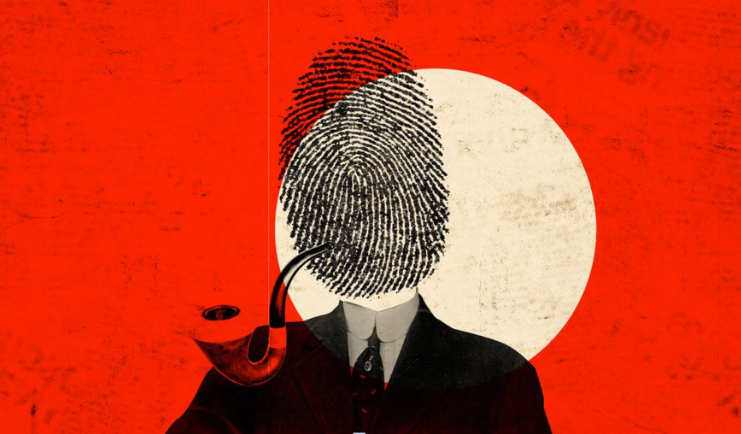Morality of True Crime
October 27, 2022
It does not take a detective to discover that true crime content- podcasts, documentaries, shows, and YouTube videos- are currently sweeping the internet. A new limited series on the crimes of Jeffrey Dahmer was recently released on Netflix, starring big-name actors such as Evan Peters of X-Men: Apocalypse and Molly Ringwald of The Breakfast Club. The series, titled Monster: The Jeffrey Dahmer Story, consists of ten episodes and tells the detailed story of Dahmer’s crimes, focusing deliberately on humanizing his 17 victims. The cast and crew, in interviews about the show, stated that they wanted to avoid creating empathy for Dahmer and wanted to capture each aspect of the story as realistically as possible. According to Variety, the show has racked up 496.1 million viewing hours in just twelve days since its release. It should make sense that this show did so well; it covers the acts of one of the most notorious serial killers. However, there have now been 20 documentaries about Dahmer, so the success is a little puzzling. How does a story stay captivating when so many people have already heard about it?
Furthermore, with the availability of podcasts and videos online, almost anyone can make content regarding true crime stories that have happened to other people, well-known cases or not. The popularity of true crime stories and the range of entertainment options both raise a crucial question: Is using true crime as entertainment ethically appropriate?

Netflix’s Monster: The Jeffrey Dahmer Story stars Evan Peters as the notorious serial killer. Photo courtesy of Netflix.
Why the Sudden Popularity?
In order to understand why the popularity of true crime media may be immoral at times, it is vital to cover why the genre has become so popular in the first place. Of course, obsession with crime and horror stories is not a new thing, as is evident by how many horror movies have been released throughout the last century. However, the fascination with real life, solved or not, feels relatively new, especially now that one can so easily access these cases via YouTube or Podcasts.
The main theory behind why so many people are drawn to these stories is that people have an innate desire to unravel mysteries and understand the motivations behind horrible acts. People want to know the things that have happened, maybe as a way to stay aware of possibilities or just as a way of entertainment. Seeing as the average person would presumably not want to know all of the terrible things that could happen to them, it is widely thought that the latter is the most common reason for consumption. This need for entertainment has led to more and more content creators switching to focus on true crime, sometimes changing their media entirely to cater to this craze.
Creative Horror Storytelling
As with any type of content on the internet, true crime media has started to become a competition to see who can tell a story in the most creative way to attract more listeners or viewers. This might manifest itself as a podcast trying to get more primary sources or interviews than another or a documentary trying to tell the same story as another in a more dramatic way. There has even been an emergence of true crime makeup tutorial videos on YouTube, where the video creator will tell the story of a crime while getting ready for the day.
This sense of competition has put a bad taste in many people’s mouths, causing viewers to question if the storytelling has lost all of its previous empathy and if creators have stopped caring about who they may hurt in the process of making content.

Bailey Sarian is a popular true crime makeup YouTuber with over 6.5 million subscribers on the platform. Photo via Bailey Sarian on Audible
The Potential Harm
There are many possible issues one could point out about true crime media. For one, the victim and the victim’s family are not always asked if they are okay with the content being made about their story. This is perhaps the most questionable aspect of the whole phenomenon. What if the family of the victim, who has gone through something unimaginable, does not want their story sold as entertainment to someone who is listening while doing the dishes? In this way, true crime can feel disrespectful and off-putting. While some creators are polite and clarify that they have the full consent of the family, a lot of the time the content can feel manipulative or mocking.
Monster: The Jeffrey Dahmer Story comes into question in this regard as well. The families of Dahmer’s victims and the family of Dahmer himself have repeatedly told the media that they do not want more documentaries made about the killer. The scenes that viewers may call “superbly acted” or “heart-wrenching” are incredibly real and raw to the people affected by Dahmer. One family specifically, the family of the 11th victim of Dahmer, came out and said that they were not told about some of the most painful scenes Netflix was including, and they were not paid a cent for their story. If one of the most viewed shows on one of the most popular streaming platforms has hidden unethical sides to it, there is no telling how many smaller shows on the internet also exploit the victims and their families.
A perhaps less extreme example of this is the aforementioned makeup videos. Because the video creators are doing two things at once, it can feel as if the story is just background noise and is not important to the creator. There must be a delicate balance between the makeup part of the video and the actual story that the video is supposed to tell. Moreover, the thumbnails of these videos usually highlight the criminal in the situation and exaggerate the crimes to get more people to click on the video. In any sense, even in videos that are not about true crime, this is thought to be manipulative. However, in these specific cases, it feels much worse. While some could make the argument that documentaries and podcasts are meant to spread awareness, these videos leave a lot of viewers feeling like the stories the videos tell are strictly for entertainment, which is where many people have issues.
Another harmful aspect is the subjectivity of it all. A lot of true crime content covers cold cases or cases that have yet to be solved. This means that as investigators are still trying to figure out what happened, millions of people with no background in solving crimes are putting in their input. If a popular podcast includes a certain story on its show, the public eye and public opinion will focus on that story, which can have detrimental effects. While creators are sometimes trying to exaggerate and dramatize the situation for entertainment, the investigators are looking at the case objectively, which causes major conflicts in the solving of these cases.
Spreading Positive Awareness?
While there are plenty of less than positive aspects of these true crime podcasts and videos, there is an argument to be made that some content is more helpful than harmful. Some families of victims ask popular podcasts to cover their stories so awareness can be raised. A lot of the time, detectives cannot focus on every case coming in, so they only take the big ones. Families of cases that are brushed to the side can reach out to creators and gather traction so an investigator may look into the case. This of course is an extremely positive thing, as long as the creator does not take advantage of a hurting family. There are a lot of content creators on the internet that are careful in their approach to a story and truly want to help families that reach out, but there are also creators who may go above and beyond what the family was hoping for or was comfortable with for the sake of drama and viewer growth.
A less common ‘perk’ of the rising popularity of true crime media is awareness of survival techniques. Not all stories are about victims who have passed away; some victims survived and want to tell their stories themselves. In this format, the viewers can take away helpful tips for unknown and horrifying situations. This is also a tricky subject matter, however, as some victims who have survived may not want to relive their experiences or hear them online. Consent is so important for the morality of this genre.
Final Thoughts
True crime is not inherently bad. It is not a bad thing for an individual to have an awareness of crimes that have happened to others. It is not a bad thing for someone to enjoy listening to these stories, and find the cases intriguing. At the end of the day, people will do what they want. If that means watching true crime and listening to podcasts about it, it is their decision. This article is in no way trying to shame people for enjoying what they want to, especially if they are respectful in the way they consume true crime.
The creators of podcasts and videos about true horror stories may not even see how the things they make might hurt people rather than help. What might have been true and pure intention to spread awareness can easily be twisted to be viewed as malicious and harmful, so it is important to keep an open mind when navigating the genre. While there are definitely some questionable formats of true crime media, there are also many that are truly respectful and objective. True crime is no different from any other genre in that sense. Perhaps the best solution in this situation is for people to put in the effort to support content creators that take the time to research the subject they are covering and to convey the information in a respectful manner. This way, people can still consume the content they enjoy while not harming others in the process.










